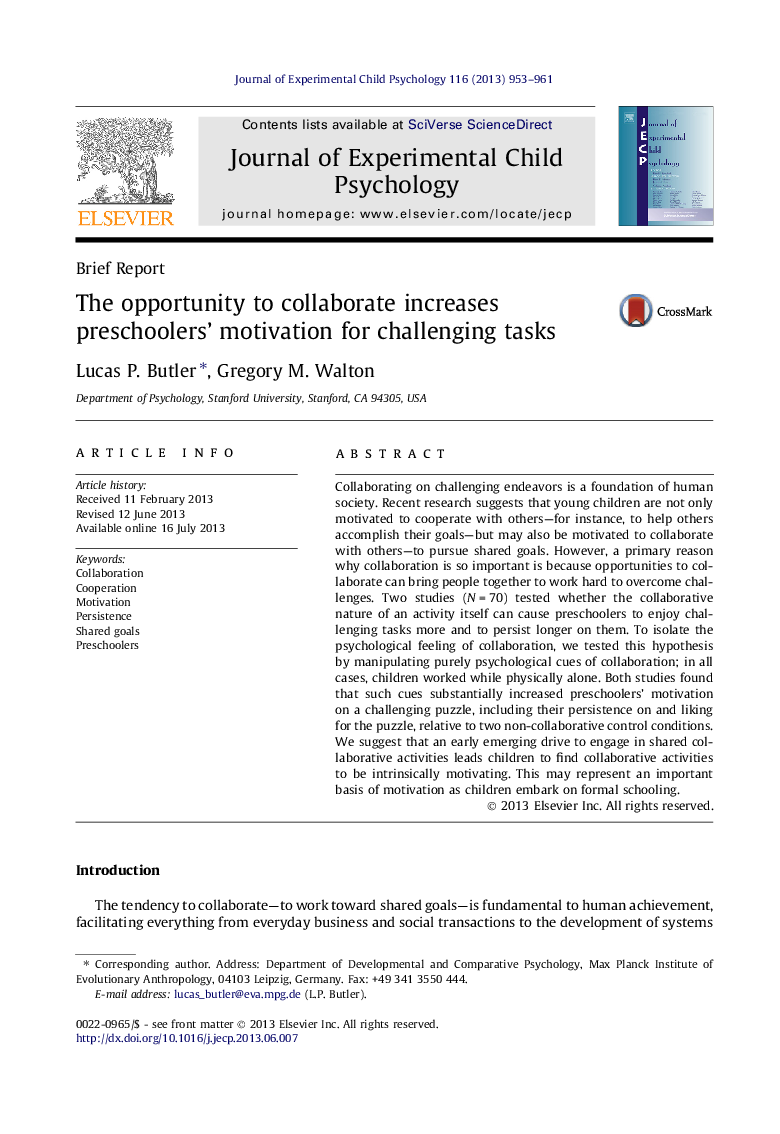| Article ID | Journal | Published Year | Pages | File Type |
|---|---|---|---|---|
| 10453052 | Journal of Experimental Child Psychology | 2013 | 9 Pages |
Abstract
Collaborating on challenging endeavors is a foundation of human society. Recent research suggests that young children are not only motivated to cooperate with others-for instance, to help others accomplish their goals-but may also be motivated to collaborate with others-to pursue shared goals. However, a primary reason why collaboration is so important is because opportunities to collaborate can bring people together to work hard to overcome challenges. Two studies (NÂ =Â 70) tested whether the collaborative nature of an activity itself can cause preschoolers to enjoy challenging tasks more and to persist longer on them. To isolate the psychological feeling of collaboration, we tested this hypothesis by manipulating purely psychological cues of collaboration; in all cases, children worked while physically alone. Both studies found that such cues substantially increased preschoolers' motivation on a challenging puzzle, including their persistence on and liking for the puzzle, relative to two non-collaborative control conditions. We suggest that an early emerging drive to engage in shared collaborative activities leads children to find collaborative activities to be intrinsically motivating. This may represent an important basis of motivation as children embark on formal schooling.
Related Topics
Social Sciences and Humanities
Psychology
Developmental and Educational Psychology
Authors
Lucas P. Butler, Gregory M. Walton,
